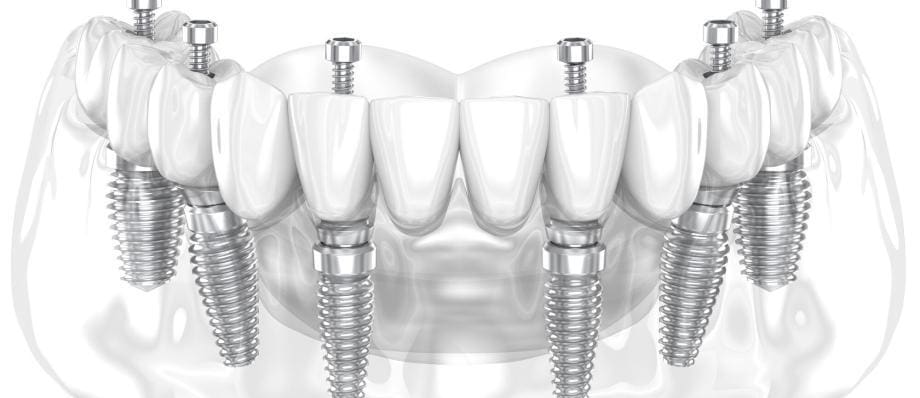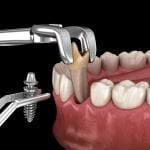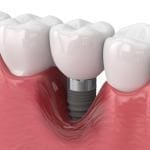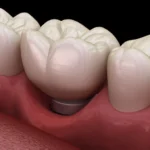In the field of dental restoration, full mouth implants have emerged as a comprehensive and effective solution for individuals with extensive tooth loss or severe dental issues. This advanced dental procedure involves the placement of dental implants throughout the entire mouth, providing patients with a durable and natural-looking set of teeth. In this article, we will explore the benefits, process, and considerations associated with full mouth implants, offering insights into why this treatment option has gained popularity among both patients and dental professionals.
Understanding Full Mouth Implants
Full mouth implants, also known as full arch implants or implant-supported dentures, are dental restorations that replace an entire arch of missing teeth. Unlike traditional dentures, which rely on suction or adhesive for stability, full mouth implants are securely anchored into the jawbone through the use of dental implants. These implants serve as artificial tooth roots, providing a stable foundation for a fixed or removable prosthesis that mimics the appearance and functionality of natural teeth.
Benefits of Full Mouth Implants
- Restored Aesthetics and Functionality
- Enhanced Durability and Longevity
- Preservation of Jawbone Health
Restored Aesthetics and Functionality
Full mouth implants offer a natural-looking smile and restore the ability to eat, speak, and chew with ease. They provide patients with improved confidence and a better quality of life.
Enhanced Durability and Longevity
Dental implants are designed to fuse with the jawbone, creating a sturdy and long-lasting foundation for the prosthetic teeth. With proper care, full arch implants can last for many years, if not a lifetime.
Preservation of Jawbone Health
By integrating with the jawbone, implants stimulate bone growth and prevent bone loss, preserving the overall structure and shape of the face.
The Full Mouth Implant Process
- Initial Consultation and Treatment Planning
- Implant Placement Surgery
- Healing and Osseointegration
- Prosthesis Design and Fabrication
- Final Placement and Adjustments
Initial Consultation and Treatment Planning
A comprehensive examination, including dental imaging and oral health assessment, is conducted to evaluate the patient’s eligibility for full mouth implants. Treatment plans are customized to meet individual needs.
Implant Placement Surgery
The surgical procedure involves the precise placement of dental implants into the jawbone. This is typically done in multiple stages, allowing time for the implants to integrate with the bone.
Healing and Osseointegration
Over a period of several months, the implants undergo osseointegration, during which they fuse with the jawbone, providing a stable foundation for the prosthetic teeth.
Prosthesis Design and Fabrication
Once the implants have integrated, impressions are taken to create a custom-made prosthesis that will be securely attached to the implants. The prosthesis is designed to match the patient’s natural teeth, ensuring a seamless and aesthetically pleasing result.
Final Placement and Adjustments
The prosthesis is attached to the implants, and adjustments are made as necessary to ensure optimal fit, comfort, and functionality.
Considerations and Aftercare
- Dental Professional Selection
- Pre- and Post-Surgical Care
- Cost and Insurance Coverage
- Potential Risks and Complications
- Long-term Maintenance and Oral Care
Dental Professional Selection
Choosing an experienced and qualified dental professional is crucial for a successful full mouth implant procedure. Patients should research and consult with multiple providers to ensure the best outcome.
Pre- and Post-Surgical Care
Patients may be required to follow specific guidelines before and after the surgery, including oral hygiene practices, dietary restrictions, and regular check-ups. Adhering to these instructions is vital for proper healing and long-term success.
Cost and Insurance Coverage
Full mouth implant treatments can be a significant investment. Patients should inquire about cost estimates and discuss available payment options with their dental provider. It is also important to check if insurance coverage or financing plans are available to help manage the cost.
Potential Risks and Complications
As with any surgical procedure, there are potential risks and complications associated with full arch implants. These may include infection, implant failure, nerve damage, or sinus complications. It is essential for patients to discuss these risks with their dental professional and weigh them against the benefits before making a decision.
Long-term Maintenance and Oral Care
Full mouth implants require regular oral hygiene practices, including brushing, flossing, and routine dental visits. Maintaining good oral care is crucial for the longevity and success of the implants.
Success Stories and Patient Experiences
Numerous patients have experienced life-changing results with full mouth implants. Their stories demonstrate the positive impact of this procedure on their confidence, oral function, and overall well-being. Testimonials from satisfied patients can provide valuable insights and assurance for individuals considering full arch implants.
Conclusion
Full mouth implants have revolutionized dental restoration, offering a comprehensive solution for individuals with extensive tooth loss or severe dental issues. With their ability to restore aesthetics, functionality, and long-term oral health, full arch implants have gained popularity among patients and dental professionals alike. By understanding the benefits, process, considerations, and aftercare associated with full mouth implants, individuals can make informed decisions about this advanced dental treatment. As technology continues to advance, full mouth implants are likely to become even more precise, efficient, and accessible, further improving the lives of those in need of extensive dental rehabilitation.





